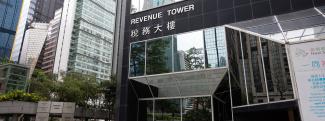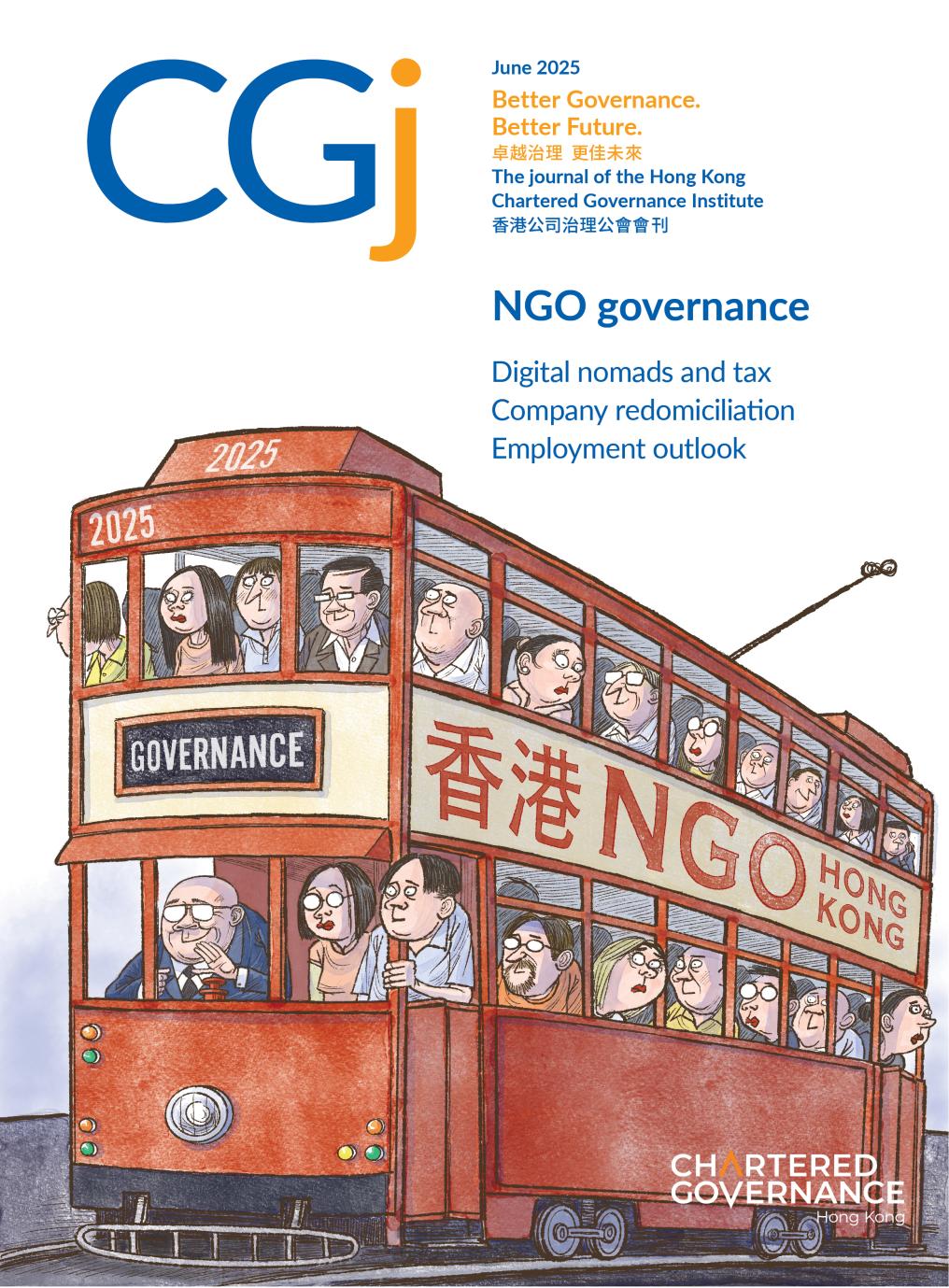
New company redomiciliation regime
CGj reviews a recent Institute seminar that explores the latest trends in the company redomiciliation regime in Hong Kong and related tax controversies.
Highlights
- Hong Kong’s new redomiciliation regime offers beneficial transitional tax relief for businesses shifting their domicile, allowing for tax deductions on pre-redomiciliation expenses and capital expenditures
- offshore structures, once favoured for their privacy and lower maintenance costs, are now losing their appeal due to stricter tax compliance and disclosure regulations
- before committing to redomiciling, businesses should assess potential historical tax risks to avoid unforeseen liabilities under Hong Kong’s territorial tax system
On 20 February 2025, the Institute hosted a seminar titled New Company Redomiciliation Regime and Latest Trends in Tax Controversy. The seminar provided an in-depth analysis of the newly gazetted company redomiciliation regime in Hong Kong, focusing on its legal framework, eligibility criteria and application process.
The seminar also addressed recent trends in tax controversy, highlighting the Inland Revenue Department (IRD)’s stricter measures on offshore claims, as well as the new rules designed to mitigate tax exposure for businesses operating in the region. This article offers a summary of insights shared by the speakers.
Enhancing Hong Kong’s competitiveness
Opening the seminar, Kenneth Lee, Counsel, Chan & Jamison LLP, began his presentation by outlining the core objectives of the company redomiciliation bill, which was gazetted on 20 December 2024 and which seeks to amend the Companies Ordinance (Cap 622) to introduce an inward company redomiciliation regime. It will enable non–Hong Kong companies to transfer their domicile to Hong Kong while preserving their corporate identity and history.
Mr Lee stated that the redomiciliation regime is a significant step forward in reinforcing Hong Kong’s position as a global business hub. ‘This new regime will attract offshore companies to establish their operational division headquarters in Hong Kong. It will provide a more accessible and streamlined pathway for international businesses to integrate with the local Hong Kong market, while preserving their existing corporate structure,’ Mr Lee said.
“This new regime will attract offshore companies to establish their operational division headquarters in Hong Kong.”
Kenneth Lee
Counsel, Chan & Jamison LLP
The new regime will also serve as an important addition to the toolkit for professionals involved in restructuring or migrating businesses, Mr Lee pointed out. Traditional methods include setting up a new subsidiary or registering a branch in Hong Kong.
The first method he discussed – setting up a new subsidiary – usually takes less than a week. The new company is a separate legal entity, meaning it does not inherit liabilities from the overseas parent company. However, Mr Lee stressed that after migration, clients often face the decision of whether to liquidate or leave the overseas company dormant, which could result in ongoing compliance costs. ‘Some clients have British Virgin Islands (BVI) or Cayman companies that have been left hanging doing nothing for 10 years while paying compliance costs,’ he said. Additionally, transferring assets such as customer contracts or employees can be costly and complex, with tax implications such as Hong Kong’s share transfer stamp duty.
The second method Mr Lee covered was registering a branch. This is a simple process, requiring only filing with the Companies Registry. It allows businesses to retain their overseas registration, which offers privacy advantages, particularly for jurisdictions like the BVI or the Cayman Islands. Moreover, registering a branch avoids stamp duty when transferring shares. However, Mr Lee drew attention to some challenges, including ongoing tax compliance uncertainties, especially around residency issues, and the need to comply with the regulations of both jurisdictions. He also suggested that third parties, particularly banks, may prefer dealing with Hong Kong entities over offshore companies due to stricter anti–money laundering concerns. ‘I have seen banks categorically tell us, no, I don’t want to open an account for a BVI entity, but I’m happy to open an account for a Hong Kong entity,’ he explained.
Mr Lee then discussed the new redomiciliation regime, which offers significant advantages in terms of legal continuity, tax efficiency and operational simplicity compared with traditional methods. ‘Redomiciliation means you change your place of incorporation but you keep your entity, so there’s no transfer of assets,’ he said. This avoids the complications of transferring assets or liabilities and ensures continuity of the company’s legal history, which can be crucial for maintaining client trust.
Mr Lee also noted that once a company redomiciles to Hong Kong, it will only need to comply with Hong Kong’s reporting requirements, thus streamlining operations. However, he also pointed out that the company must still register in its original jurisdiction. ‘Once you redomicile, you must register in your original home jurisdiction,’ he clarified.
Navigating differences
Mr Lee highlighted several potential disadvantages, such as the disclosure obligations that come with redomiciliation. ‘Once you redomicile to Hong Kong, you need to file returns in this jurisdiction, so your shareholders are no longer as difficult to find as if you were in a typical jurisdiction where you cannot search for some of the shareholders,’ he stated. Additionally, he indicated that the audit requirements, which may be unfamiliar to companies from jurisdictions without such obligations, could lead to higher costs.
Mr Lee also discussed the eligibility criteria for redomiciliation, which are outlined in the current draft of the bill. These include the requirement for the company to be one of the four types of entity allowed to redomicile, with the most common being private companies limited by shares. ‘Companies limited by guarantee are not included. These are usually charities or associations,’ he explained. In addition, he mentioned amendments to the Insurance and Banking ordinances, noting that companies in these sectors must first obtain a letter of no objection from the relevant authorities before approaching the Companies Registry.
The process of redomiciliation involves several steps, including obtaining a legal opinion to confirm that the company meets the necessary criteria for redomiciliation. ‘A legal counsel has to opine that you can redomicile to Hong Kong,’ he clarified, emphasising that this opinion must cover various aspects such as shareholder approval and compliance with local laws.
Mr Lee then reminded participants that the redomiciliation regime in Hong Kong is currently an inward-only regime, meaning that Hong Kong does not permit outward redomiciliation under the current proposal.
Finally, he outlined some practical steps that companies must take after redomiciliation, such as notifying third parties and ensuring that any necessary registrations are updated. ‘Contracts carry over under the power of the law, but in practice you may want to notify third parties to explain why the corporation has changed,’ he said. He also noted that the process might involve changes in registration requirements, such as updating the place of incorporation for intellectual property (IP) rights.
Tax status
The second speaker of the seminar, Pau Ka Yan, Tax Partner, Global Business Tax Services, Deloitte China, discussed a major tax issue related to redomiciling companies to Hong Kong.
She made it clear that, from a tax perspective, there are multiple options available for companies considering moving their operations to Hong Kong and that the introduction of the redomiciliation option is a welcome development. ‘There is no one solution that fits all,’ she said, acknowledging that each option has its pros and cons depending on the company’s specific needs.
One of the key points Ms Pau addressed was the tax status of a redomiciled company. Ms Pau explained that the proposed amendments to the Inland Revenue Ordinance clarify that once a company redomiciles to Hong Kong, it will be treated as a Hong Kong incorporated entity for tax purposes. This is significant for companies that wish to qualify as a Hong Kong tax resident and thus benefit from Hong Kong’s extensive network of tax treaties with other jurisdictions.
Ms Pau also highlighted the flexibility that redomiciliation provides, especially for companies that may want to amalgamate or restructure their corporate structure. ‘When redomiciliation is enabled, we can amalgamate the entity with another Hong Kong incorporated entity, which would give companies greater flexibility in streamlining their operations,’ she observed. This ability to merge entities is not available to companies registered under Part 16 of the Companies Ordinance.
However, Ms Pau pointed out that redomiciled companies would also face new obligations, such as Hong Kong’s stamp duty on future transfers of shares. ‘Any future transfer of the entity’s shares will be subject to Hong Kong stamp duty, just like any other ordinary Hong Kong incorporated entity,’ she said. Additionally, the company will be subject to annual statutory audit requirements, unlike companies registered under Part 16.
Ms Pau also discussed the potential challenges associated with exit taxes in the home jurisdiction, especially for companies coming from high-tax jurisdictions and those without a double tax treaty with Hong Kong. ‘In the process, you will have to deregister in the home jurisdiction and there may be tax clearance, tax audit and possibly exit tax costs,’ she explained. To address the risk of double taxation, the proposed bill introduces a unilateral tax credit mechanism, allowing companies to claim a tax credit in Hong Kong against any taxes paid overseas, whether or not a double tax treaty with Hong Kong is available.
Tax benefits
Ms Pau also outlined key updates on the transitional tax measures proposed in the Inland Revenue Ordinance, as well as scenarios where the redomiciliation process could benefit taxpayers. For example, after the redomiciled company has commenced business in Hong Kong, the general rule allows Hong Kong profits tax deductions on expenses incurred before the redomiciliation date, as long as no other tax deductions have been claimed in Hong Kong or elsewhere. In addition to this general rule, there may be additional rules governing Hong Kong profits tax deductions on different types of expenditure, such as trading stocks and capital expenditure on R&D.
Hong Kong–listed companies incorporated in jurisdictions like the Cayman Islands or Bermuda might benefit from redomiciliation. These companies would be the first batch of offshore companies to be encouraged to redomicile to Hong Kong as they are already subject to Hong Kong’s annual audit and tax filing requirements. In such cases, redomiciliation would be a straightforward process. ‘It would be easier for Hong Kong–listed offshore entities to redomicile because they are already doing annual audits under Hong Kong’s requirements,’ she said.
There might also be a potential need for European companies in jurisdictions such as Luxembourg, Switzerland, the Netherlands and Malta to redomicile to Hong Kong due to the increasing difficulty of meeting local economic substance requirements. The new regime in Hong Kong offers an incentive for companies to relocate their IP holdings to Hong Kong. ‘With redomiciliation, companies can relocate their R&D activities to Hong Kong, as well as centralise their patents and other types of IP in this jurisdiction, benefiting accordingly from the newly introduced patent box tax incentive,’ she said.
Lastly, Ms Pau cautioned that businesses should conduct a health check before proceeding with redomiciliation. Since Hong Kong adopts a territorial source principle for taxation, even offshore entities could be subject to historical tax exposure if they have already been carrying on any form of business in Hong Kong.
“With redomiciliation, companies can relocate their R&D activities to Hong Kong, as well as centralise their patents and other types of IP in this jurisdiction.”
Pau Ka Yan
Tax Partner, Global Business Tax Services, Deloitte China
Tax controversies
The last speaker of the seminar, Polly Wan, Tax Partner, Global Business Tax Services, Deloitte China, described the scenarios in which offshore entities might be seen as conducting business in Hong Kong, thereby exposing themselves to local tax risks.
A key consideration, according to Ms Wan, is when a foreign entity has significant retained earnings. In such cases, the company may face challenges when redomiciling, as the IRD might inquire about the company’s activities prior to redomiciliation.
The treatment of interest-bearing loans also becomes a potential issue during the redomiciliation process. Ms Wan detailed two tests that the IRD uses to determine the source of interest income – the operation test and the provision of credit tax. The operation test applies if the company is a financial institution or is engaged in moneylending or intragroup financing, whereas the provision of credit tax generally applies to simple loans of money. However, Ms Wan pointed out that the IRD does not have a clear definition of what constitutes a simple loan, which can lead to complications for companies during audits.
For companies with offshore income, Ms Wan discussed the Foreign-Sourced Income Exemption (FSIE) regime, which has been in effect since 2023. Under the FSIE regime, offshore income may become taxable in Hong Kong if specific conditions are not met, including the need to demonstrate economic substance. ‘Under the FSIE regime, we need to satisfy the economic substance requirement if we want our offshore interest income to continue to enjoy an exemption in Hong Kong,’ she said. This adds another layer of complexity for companies looking to restructure their loans or operations after redomiciliation.
“Under the FSIE regime, we need to satisfy the economic substance requirement if we want our offshore interest income to continue to enjoy an exemption in Hong Kong.”
Polly Wan
Tax Partner, Global Business Tax Services, Deloitte China
Ms Wan also addressed the issue of IP income, noting that many offshore entities hold valuable IP assets. She explained that the determination of the source of IP income can be complex, depending on whether the IP was developed in Hong Kong or acquired from another entity. ‘If this IP was developed or created in Hong Kong, the IRD will generally consider that the IP income generated by this IP is Hong Kong–sourced,’ she said.
Ms Wan urged companies to carefully assess their structures, especially in terms of interest-bearing loans and IP income, before proceeding with any redomiciliation process. ‘It is very important to consider these aspects beforehand,’ she emphasised.
Driving policy forward – redomiciliation as a strategic advantage
The Institute welcomes the HKSAR Government’s commitment to implementing a general redomiciliation regime and would like to extend its sincere thanks to the Financial Services and the Treasury Bureau (FSTB) for adopting its pioneering thought leadership proposal submitted in May 2019. Since then, the Institute has actively engaged with the Administration – including correspondence with the Chief Executive and the FSTB in 2023 – to advocate for this important policy.
The Institute is encouraged by the phased development of the regime, beginning with open-ended fund companies and limited partnership funds, and now expanding more broadly, as reflected in the latest Budget Speech. This initiative enhances Hong Kong’s competitiveness as an international financial centre. It offers a timely compliance advantage in the context of BEPS 2.0, particularly for sectors like insurance, where global mobility and regulatory alignment are key.


